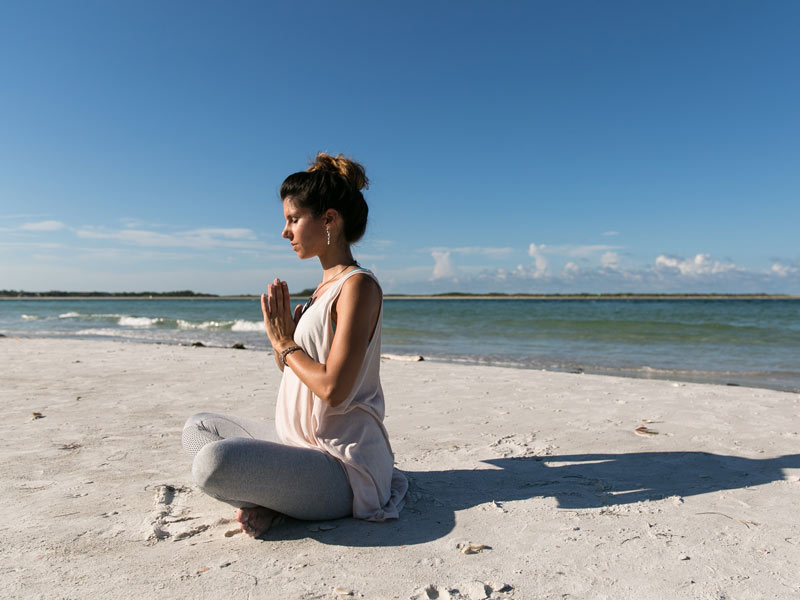
A tropical country, India is known for its warm climate, especially the sweltering summers. For a country that bears hot and humid weather for a major part of the year, winters can seem like a huge respite. This season has its own set of characteristics. Wearing layers of woolens, sipping piping hot beverages throughout the day, are some of its trademarks. Another activity that is a characteristic of this season is sunbathing. Many people spend hours throughout the day sitting or lying in the sun to beat the cold. That’s the intent behind this activity. However, that’s not the only benefit of sunbathing.
Table of Content:-
Benefits Of Sunbathing

(Photo Credit: Freepik)
As the name suggests, sunbathing simply refers to sitting or lying in the sun. As you might already know that sunlight is the primary source of vitamin D, a vital nutrient, which your body produces when exposed to sun rays. This particular nutrient is great for bones, muscles, and the immune system. The benefits of sunbathing are generally linked to vitamin D. Following are the benefits of sunbathing during winters:
- Stronger Bones: As you might already know that calcium is the nutrient that helps strengthen bones. However, your body needs vitamin D to absorb calcium. Hence, with sunbathing, you get enough vitamin D, which in turn helps your body fulfill your calcium needs, which in turn promotes stronger bones.
- Helps With Depression: Winter blues is something many people suffer from during this season. It generally refers to the mood shifts you experience during the cold and dark winter days. You feel lazy, lethargic, and have a low mood. To beat that, vitamin D is a great remedy. And you can get it by spending a few minutes out in the sun.
- Helps You Relax: Now you might have experienced this one. When you sit for a few minutes in the sun during winter, your muscles relax, which makes you feel calm and relaxed.
- Boosts Immunity: Viral diseases are quite common during winters. Your immune system functions as a defense against the bacterias and viruses that cause these illnesses. And one of the nutrients that boost your immune system is vitamin D (vitamin D3 is good for immunity to be more specific). And you can get it through sunlight.
- Better Sleep: Owing to the stressors of modern life, sleep disturbances are something many experiences these days. One of the reasons for a lack of sleep is lack of sun exposure. When you spend more time out in the sun, it automatically resets your internal body clock, called the circadian rhythm. This means, you automatically start feeling drowsy once the sunsets.
- Good for Alzheimer's Patients: Vitamin D can be beneficial for those suffering from Alzheimer's disease, a neurological disorder, in which the patient’s memory starts getting destroyed and so do the other brain functions. As per a study published in the Journal of the American Medical Association, Alzheimer's patients when exposed to sunlight experienced fewer symptoms of forgetfulness. They also experienced less depression.
Also read: 9 Signs That Your Body Is Begging For Vitamin D
Drawbacks Of Sunbathing

(Photo Credit: Freepik)
Although an excellent source of vitamin D, the American Academy of Dermatology recommends against meeting all your vitamin D requirements from sun exposure. This might be because excessive exposure to sunlight is associated with several issues, such as:
- Melanoma: Excessive exposure to sunlight without wearing sunblock can cause melanoma. A serious disease, in this, cancer cells start to form in melanocytes, which are cells that provide colour to your skin.
- Skin Rash: If you spend too much time out in the sun, it can lead to the formation of red and itchy rashes on your skin.
- Sunburn: Another painful ill effect of too much sun exposure is sunburn.
- Sun Poisoning: One step ahead, excessive sunbathing without taking the requisite precautions can lead to skin sun poisoning, characterised by skin redness, itching, and skin peeling.
Also read: High Dose Vitamin D Supplementation Can Help To Fight Covid-19? Here's What The Expert Says
Sunbathing Precautions
To avoid these risks associated with sunbathing, it is better to take the requisite precautions to prevent these. Here are some tips that might help:
- Wear good sunscreen for at least 15 minutes before going out in the sun. This shouldn’t be restricted to sunbathing but should be done whenever you go out.
- Cover as much part of your body as you can. For that, you can wear appropriate clothing, cover it with a piece of cloth or wear a hat.
- Take breaks and go in the shade frequently.
- Tomatoes contain an organic pigment called lycopene, which is known to protect the skin from redness, which usually happens due to excessive sun exposure.
- To avoid dehydration, drink a lot of water when out in the sun.
So as you saw, sunbathing has many positives as well as negatives. For reaping all the positives and minimising the negatives, what you need is to take ample precautions, like wearing sunscreen, covering your body, or going in the shade frequently.
Photo Credit: Freepik
Also watch this video
How we keep this article up to date:
We work with experts and keep a close eye on the latest in health and wellness. Whenever there is a new research or helpful information, we update our articles with accurate and useful advice.
Current Version
